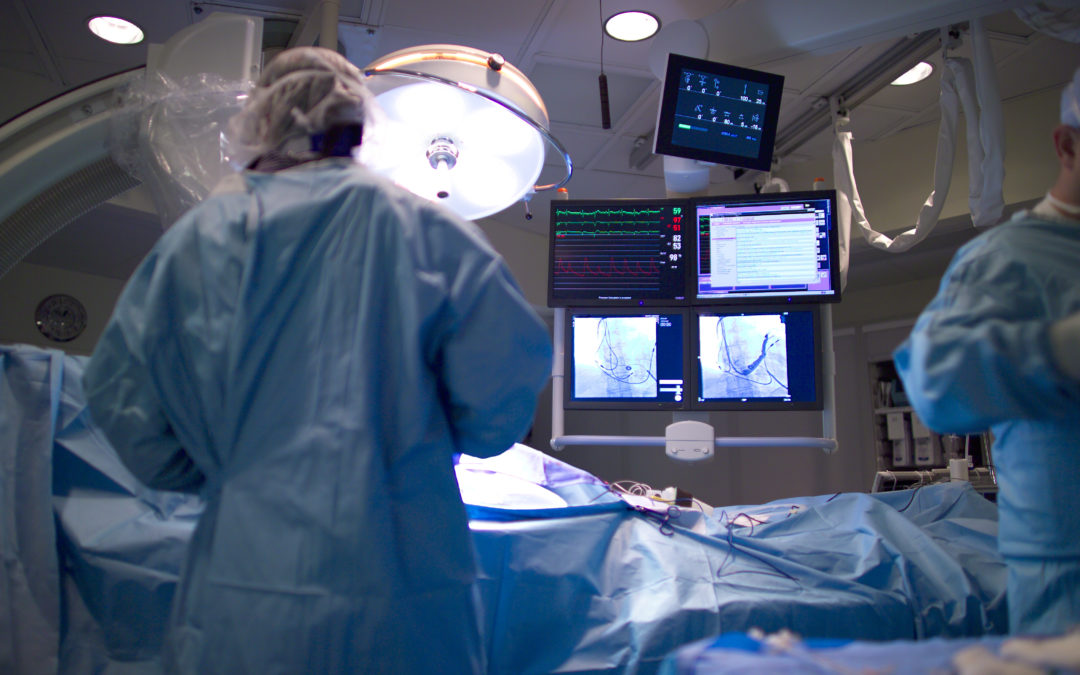
by DrCiuffo | May 15, 2022 | Blog, Dr. Giovanni B Ciuffo, Heart Health
The Benefit of a Low Sodium Diet Anyone who has a family history of hypertension has heard the term “low sodium diet.” It sounds like a bland way of eating that deprives the eater of flavor and interest in food, but it doesn’t have to be that way. As Americans, we consume a constant stream of processed foods, but given the chance, it’s possible to retrain ourselves to enjoy a wider range of flavors. We are dedicated to helping you find the healthiest opportunities for your body. Starting a low sodium diet is the perfect place to begin that journey. Low Sodium Diet While at first, the idea of reducing one’s salt intake may imply the loss of flavor, the exact opposite is true. In processed foods, salt is used to mask the flavor of chemicals and to replace the natural flavors lost in the cooking and preservative processes. When salt is reduced in our diets, those flavors have a chance to emerge, and our tastes adjust to enjoy the natural flavors in foods once again. Choosing a low-sodium diet isn’t just better for your overall health, it opens up new vistas of enjoyment in your eating that will make you fall in love with food again. If you are looking for ways to incorporate new flavors into your diet as well, this use of less salt can be a chance to try other spices. There are many recipes out there to try that require no salt at all. The key is being open to new experiences and flavors that may replace your desire to use salt in your... 
by DrCiuffo | Apr 15, 2022 | Uncategorized
No matter what stage of life you are in, healthy nutrition is important to maintain good health, prevent many diseases, feel good, and is vital for our hearts. In this blog we will answer the question, what changes should I make before and after heart surgery. Heart disease is the number one cause of death of women and men in the United States. If that doesn’t alarm you I don’t know what will. If heart surgery is on the horizon for you, you can prepare with some lifestyle changes and know what needs to change once you are in recovery. Changes to Make Before Heart Surgery Quit smoking because it inhibits the body’s ability to heal. If you have diabetes be sure to keep your blood sugars well controlled. High blood sugar also makes it hard for our bodies to heal. You want to have quality nutrition before entering surgery. Our bodies get stressed when we are sick or have surgeries, so it is important to have good nutrition before surgery to help you heal faster after your surgery is completed. If your normal routine is healthy then don’t change your system. If you notice you’ve had a poor diet and haven’t been eating normally and have lost some weight, try finding foods and drinks you can have that will give you the calories you need. You don’t want to be losing weight and on a strict diet before surgery. Changes to Make After Heart Surgery After heart surgery, you will again want to be having good nutrition. After heart surgery, your body will need more protein and enough calories... by DrCiuffo | Mar 15, 2022 | Aortic Valve Replacement, Blog, Heart Surgery
Having invasive surgery for a heart valve replacement is sometimes necessary, but it doesn’t have to be. Open heart surgery is a major operation and requires a hospital stay of at least a week, with part of that in the intensive care unit in most cases. Depending on your age, general health, and how severely damaged or faulty your heart valves are, invasive surgery may not be necessary. Although studies have shown that the heart valve replacement surgery survival rate is very high, there are other less invasive treatments for valve repair or replacement, such as minimally invasive aortic valve replacement or minimally invasive mitral valve repair. Minimally Invasive Aortic Valve Replacement Aortic Stenosis (AS) is a heart disease affecting the aortic valve. This valve is responsible for pumping oxygenated blood to all parts of the body. With AS, the aortic valve is too narrow, causing a very high internal pressure due to the heart working extra hard to pump blood through it. This pressure triggers the cardiac muscle to thicken to increase its strength, and eventually tires out and results in a life-threatening condition. The majority of patients with AS, with or without symptoms present, need to have minimally invasive aortic valve replacement to replace the defective valve with a new mechanical or biological heart valve prosthesis. If there has been a diagnosis of severe AS, even if symptoms are not present, patients should be evaluated as soon as possible for surgical intervention. Clinical evidence shows that delaying surgery is dangerous. Severe symptomatic aortic valve stenosis is a lethal condition that requires effective aortic valve replacement. No other... by DrCiuffo | Feb 15, 2022 | Advanced Heart Surgery, Anatomy, Blog, Dr. Giovanni B Ciuffo, Heart Health
Open heart surgery is one of the most invasive and stressful procedures doctors perform. Emotional side effects of open-heart surgery are to come after the procedure. In open-heart surgery, the heart is exposed for major repairs, a long incision in the chest is made, the breast bone is broken, and a heart-lung machine is used to pump blood in place of the heart. All of this places great stress on your body. Open heart surgery is not minimally invasive heart surgery. Living with, and through, the physical effects of open-heart surgery can be daunting. Included are pain at the incision site, muscle pain, or throat pain. If you have chest tubes for drainage, those can also be uncomfortable. Despite the discomfort, post-surgical pain usually disappears after 6 – 8 weeks. However, other kinds of problems can linger? The emotional side effects of open-heart surgery might surprise you. Personality and Emotional Side Effects of Open-Heart Surgery People who have had open heart surgery report mood changes, as do people close to them. Anxiety and depression are the most commonly experienced emotions after heart surgery. Anxiety can be caused, in part, by worries about possible physical aftereffects of the surgery. Keep in mind that full recovery from open heart surgery can take up to one year. Depression Patients who experience depression for more than several weeks after open-heart surgery may have something more than a typical, post-surgical mood change. One way to tell is if a person has difficulty in doing simple, daily tasks, like making their bed, getting and staying properly dressed, or keeping a routine. If an individual was... 
by DrCiuffo | Jan 15, 2022 | Heart Surgery
Open heart surgery is a big decision to make and the most common type of surgery performed on adults. During the surgery, a healthy vein or artery is attached to a blocked coronary artery. This allows the grafted artery to bypass the blocked artery and bring fresh blood to the heart. Before one undergoes heart surgery they will start preparing, who will pick up their medicine when recovering, who will handle household responsibilities, and who will pick up their slack at work. One thing people might not prepare for is emotional changes after open heart surgery and how to stay positive during the recovery season. Cardiac Depression After Open Heart Surgery Up to 25% of patients experience cardiac depression after surgery. Factors that can increase the risk of depression include reactions to anesthesia, effects of antibiotics, pain and discomfort while recovering, reactions to certain pain relievers, emotional stress resulting from the surgery, or concerns about the impact on the quality of life. We think of our mood as based on how we feel. But having a positive and uplifting outlook during recovery can improve your physical healing process. Emotional changes after heart surgery will occur but you have the power to captivate your thoughts into being positive and potentially help your recovery process. There are some strategies that can improve your odds of feeling good during recovery. Reduce Emotional Changes After Open Heart Surgery Knowing what to expect before, during, and after open heart surgery can help reduce depression symptoms and emotional changes after open heart surgery. This shows the importance of asking your provider any and all questions...



